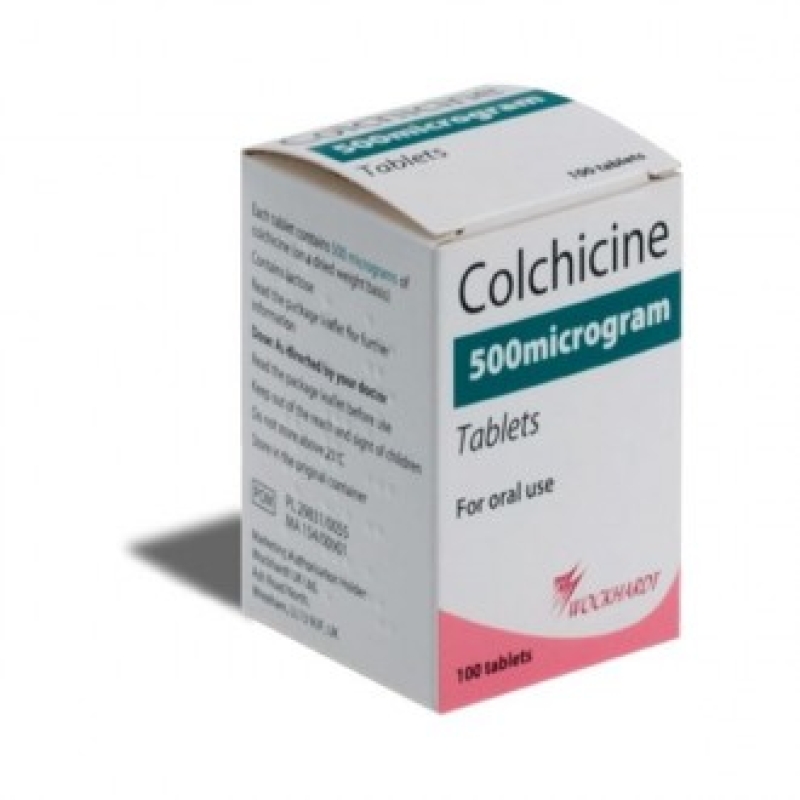Colchicine is a medication primarily used to treat acute gout attacks. It helps reduce inflammation and pain caused by uric acid crystals in the joints.
It works by disrupting the inflammatory process, mainly by inhibiting the activity of white blood cells involved in the response.
The drug is usually taken in low doses for a short period during gout attacks. However, the exact dosage depends on the patient's condition and should be prescribed by a healthcare professional.
Common side effects of colchicine include diarrhea, nausea, and abdominal pain. More serious risks, such as bone marrow suppression and muscle toxicity, are rare but possible.
Colchicine should be used with caution in patients who have liver or kidney problems. It can also interact with other medications, so medical supervision is essential.
Overall, colchicine is effective at managing gout if used correctly. However, it requires careful monitoring because of its potential side effects.
Colchicine is usually taken at the first indication of a gout attack, and prompt use is beneficial. The tablets should be swallowed whole with water and should not be crushed or split, as this could alter how the medication is absorbed in your body. The standard dose is typically 1 tablet, taken 2 to 4 times daily for gout treatment.
It is crucial to follow your doctor’s prescribed dosage instructions carefully, as the difference between the correct dose and an overdose is small. Taking the right dose helps ensure that colchicine is most effective and reduces the risk of side effects.
Colchicine can cause a range of side effects, some common and others more serious. Here are the detailed side effects:
Common Side Effects:
- Diarrhea, which is the most frequently reported side effect
- Nausea and vomiting
- Abdominal pain or cramping
- Loss of appetite
Less Common Side Effects:
- Muscle weakness or pain
- Fatigue or general malaise
- Rash or skin irritations
- Headache
Serious Side Effects (requiring immediate medical attention):
- Bone marrow suppression, leading to conditions like leukopenia, anemia, or thrombocytopenia, which result in increased risk of infections, bleeding, or fatigue
- Muscle toxicity or rhabdomyolysis, potentially causing severe muscle pain, weakness, and elevated creatine kinase levels
- Liver or kidney problems, indicated by jaundice, dark urine, or decreased urine output
- Signs of allergic reactions such as swelling, difficulty breathing, or skin rash
Note: Because colchicine has a narrow therapeutic window, overdose can lead to severe toxicity, including multiorgan failure and death. Therefore, adherence to prescribed doses and prompt reporting of any adverse effects are essential.
You should not take colchicine if you have a blood disorder or have damage to your liver or kidneys.
It’s important to consult a doctor or pharmacist before using this medication if you are elderly or have heart or digestive system problems.
If you are taking any other medications, whether prescribed or over-the-counter, you should speak to a healthcare professional beforehand, as colchicine can be toxic.
You must follow the prescribed dose carefully, and never take more than advised, because overdose can be dangerous.
If you experience nausea, vomiting, or diarrhoea, seek medical attention immediately.
Regular blood tests are necessary to monitor your blood cells and platelets while taking colchicine.
Be sure to read and understand all warnings and precautions listed in the Patient Information Leaflet.
Colchicine in pregnancy and breastfeeding:
Colchicine is not suitable for women who are pregnant or breastfeeding.
You should use reliable contraception during treatment to prevent pregnancy.
If you suspect you're pregnant while taking colchicine, speak to a doctor for advice.





